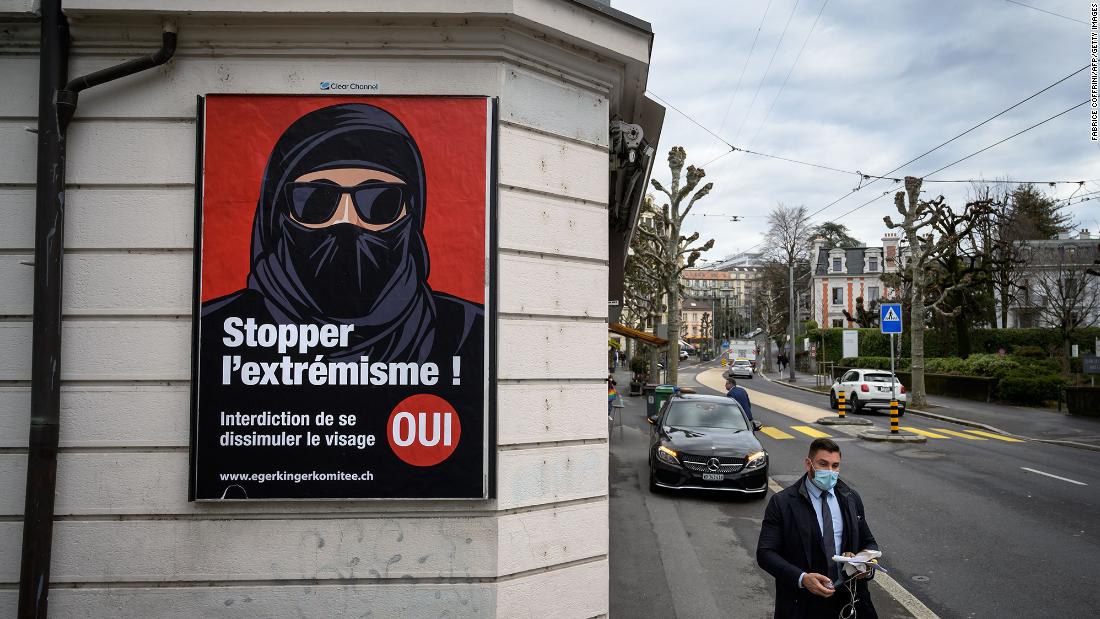The result means that facial coverage will be banned in all places accessible to the public, including on the streets, in public offices, on public transport, in restaurants, shops and in the countryside.
The only exceptions include places of worship and other sacred sites. Facial coverage will also be allowed if the use is for health and safety reasons, due to the climate and in situations where it is considered “local custom” to do so, as in carnivals, according to the text of the proposal published by the Swiss federal government .
There will be no additional exceptions, for example for tourists, the government document said.
The proposal, put forward by several groups, including the right-wing Swiss People’s Party, does not mention Islam specifically, but has been widely referred to as the “burqa ban” in the Swiss media.
It has been criticized by several Swiss religious organizations and human and civic rights groups, as well as by the federal government. The Swiss Council of Religions, which represents all the main religious communities in Switzerland, condemned the proposal earlier this year, emphasizing that the human right to religious freedom also protects religious practices, such as dress codes.
The Swiss Federal Council, which acts as the country’s federal government, and the Swiss Parliament also rejected the initiative for going too far and advised people to vote against it, according to government documents. Both bodies presented a counter-proposal to the ban, which would require people to remove any facial coverage and show their faces to the police or other officers, if necessary, for identification purposes.
Sunday’s referendum was the culmination of several years of debates on the subject and comes 12 years after another referendum banning the construction of minarets in the country. Two Swiss cantons – St Gallen and Ticino – have banned full facial coverage in the past, according to the federal government website. In several other cantons, full facial coverage is currently prohibited only in protests.
The result of the vote was criticized as “anti-Muslim” by Amnesty International. “Swiss voters once again approved an initiative that discriminates against a particular religious community, unnecessarily fueling division and fear,” the group said in a statement on Sunday.
CNN’s Arnaud Siad contributed reporting.
